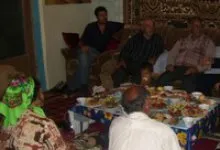newsletter-070617
Summer 2017 Newsletter on the Kurdish project

newsletter-060317
Spring 2017 Newsletter on the Chukchi project
The birth of the Gospel in the Chukchi language

These words were spoken on the local TV newsbroadcast in Anadyr, the capital of Chukotka. But these simple words of a short TV report do not give us the full picture of what strenuous creative efforts and what intellectual agony the task demanded. It does not show how many months and years first the translation and then the revision of a relatively small text of the Gospel of Luke actually required.
newsletter-011216
Winter 2016-2017 Newsletter

newsletter-020816
Autumn 2016 Newsletter

newsletter-0616
Summer 2016 Newsletter

newsletter-0316
Spring 2016 Newsletter

newsletter-0915
Winter 2015-2016 Newsletter on what is common between the Kyrgyz epic story and the Bible

newsletter-0915
Autumn 2015 Newsletter on Scripture Engagement

newsletter-0115
Summer 2015 Newsletter on the Bashkir project

newsletter-0315
Spring 2015 Newsletter on the Nenets project

